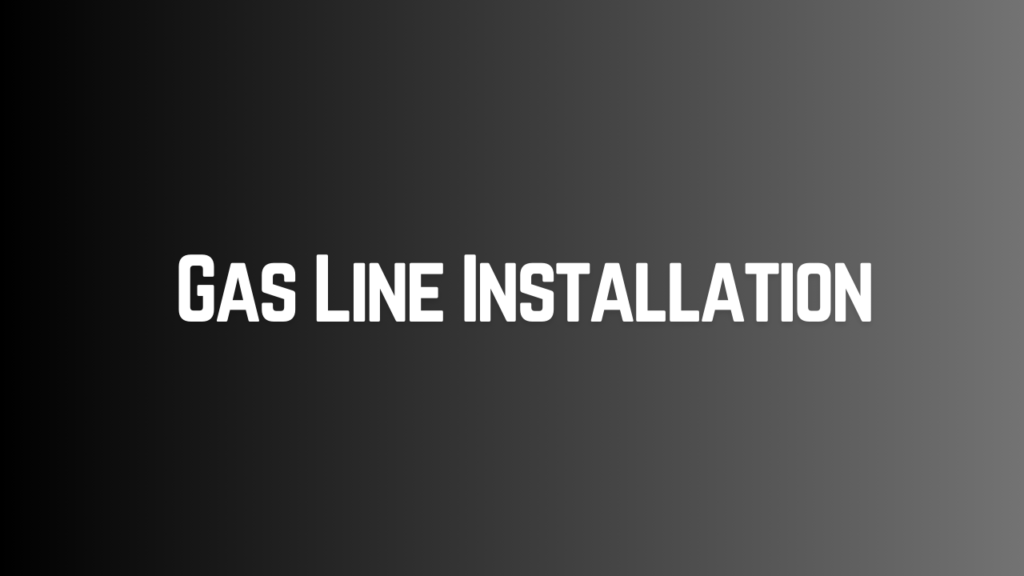
Gas line installation is a critical aspect of any residential or commercial property. It involves the careful and precise setup of gas lines to ensure the safe and efficient delivery of natural gas or propane to various appliances and heating systems. This informative article will delve into what gas line installation is, how it is done, its benefits, maintenance requirements, responsibilities, and essential information.
What is Gas Line Installation?
Gas line installation refers to the process of setting up a network of pipes and connections to transport natural gas or propane from its source to different parts of a building where it’s used for heating, cooking, and other purposes. This installation is vital for homes, businesses, and industrial facilities that rely on gas-powered appliances and heating systems.
How is Gas Line Installation Done?
Gas line installation is a complex and precise task that qualified professionals should only perform. Here’s a step-by-step overview of the process:
Assessment and Planning: The installation begins with a thorough assessment of the property to determine the optimal route for the gas lines. Factors like safety, efficiency, and local regulations are considered.
Permitting: Obtaining the necessary permits is crucial in compliance with local building codes and safety regulations.
Pipe Selection: The appropriate type and size of pipes are selected based on the gas load requirements and the distance they need to cover.
Pipe Installation: The gas pipes are installed using specialized tools and equipment. This includes connecting pipes to the gas source and routing them to various locations within the building.
Pressure Testing: After installation, pressure testing is performed to ensure there are no leaks in the system. This step is vital for safety.
Appliance Connection: Gas appliances such as stoves, water heaters, and furnaces are connected to the gas lines.
Safety Checks: A final inspection is carried out to confirm that all safety measures have been implemented and the installation complies with local regulations.
Benefits of Gas Line Installation
Gas line installation offers several advantages:
Cost-Efficiency: Natural gas is often more cost-effective than electricity for heating and cooking.
Energy Efficiency: Gas-powered appliances tend to be more energy-efficient.
Reliability: Gas supply is reliable, even during power outages.
Environmental Benefits: Natural gas is a cleaner-burning fuel compared to some alternatives.
Increased Property Value: Having a gas line installed can increase the value of your property.
Maintenance and Responsibilities
Once the gas line is installed, proper maintenance and responsible use are crucial:
Regular Inspections: Periodic inspections by qualified professionals ensure the system’s integrity.
Leaks: If you suspect a gas leak, it’s essential to turn off the gas supply immediately, evacuate the premises, and contact your gas provider or emergency services.
Responsible Use: Educate household members or employees about safe gas usage practices.
Repairs: Licensed professionals should carry out any repairs or modifications to the gas line.
Conclusion
Gas line installation ensures a safe and efficient gas supply for residential and commercial properties. Proper planning, installation, and maintenance are essential to enjoy the benefits of this energy source while prioritizing safety. If you’re considering gas line installation in the Fife council area, contact Fife Trades for a quote today. Your safety and comfort are our top priorities.
Please get in touch with us for a Quote today. Send us a message at: fifetrades@gmail.com Contact Us: Contact Fife Trades About Us: Read About Fife Trades Our Services: Fife Trades Services
